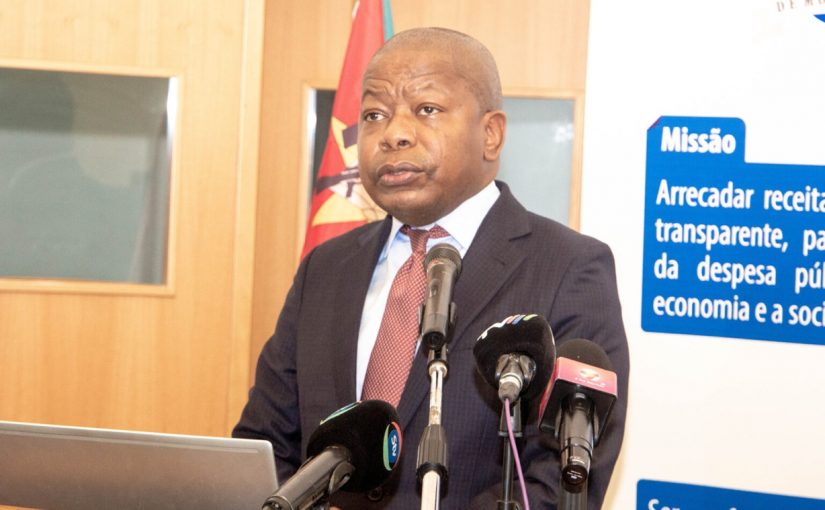Infant cereal on sale at promotional prices in Greater Maputo poses no risk - INAE
CTA calls for the integration and centralization of Mozambique’s tax policy in the Ministry of Finance

Photo: CTA
The Confederation of Business Associations of Mozambique (CTA) yesterday proposed the integration and centralization of tax policy in the Ministry of Finance, to ensure greater control of tax policy and better analysis of its effects on the economy’s performance. The CTA was participating in the central Taxpayer’s Day ceremony in Maputo this Monday.
Speaking at the opening of the event, the CTA president Agostinho Vuma said that the CTA has collaborated with the Tax Authority (AT), to promote tax citizenship among businesspeople and encourage compliance with tax obligations.
However, to ensure a more favourable business environment, CTA was proposing a set of measures, including improving the system for analyzing the effects of the introduction of new rates and other tax charges on companies; restraint in the introduction of new taxes and other tax charges that companies have to pay to prevent prudential limits from being exceeded; and the fight against corruption to ensure that the resources collected are applied effectively for the benefit of the population.
Studies carried out by the CTA reveal a worrying trend, which has to do with the federalization of tax policy, in which sectoral entities adopt an autonomous budgetary stance that is dissociated from the general tax policy of the government. This dispersion in the tax system not only reduces the control capacity of the Ministry of Finance, but also increases the tax burden on companies.
Furthermore, the current context is marked by an atypical situation worsened by the post-electoral crisis and the impacts of cyclones Chido, Dikelede and Jude, which severely affected the provinces of Cabo Delgado, Nampula and Zambézia between December 2024 and March 2025. In this scenario, the CTA argued that it is crucial for the government to adopt anti-cyclical policy measures to encourage the recovery of the business sector, avoiding further burdening taxpayers who are already facing difficulties.
With regard to the competitiveness of the private sector, CTA studies indicate that the current tax burden stands at 36.1%, a value above the average for developing countries and very close to the maximum point of the Laffer curve (36.67%). Exceeding this limit could result in zero profitability of private sector activity, with negative impacts on investment and economic growth.
Furthermore, the complexity of procedures and the time required to comply with tax obligations also contribute to the high tax burden, making practices such as smuggling and tax evasion more attractive, especially among small producers.
Reforms to strengthen tax revenue collection
Speaking in turn, the President of the Tax Authority, Elisa Zacarias, referred to the reforms made in recent years, highlighting the digitalization of services such as the Taxpayer Portal, e-Taxation system, payments via banks and the e-Declaration platform, initiatives that aim to make compliance with tax obligations more agile, secure and accessible to all taxpayers.
In addition to digital reforms, the AT is also involved in projects aimed at simplifying procedures and reducing costs in the customs clearance of goods, such as the taxation of the digital economy; development of the concept of one-stop borders; consolidation of the authorized economic operator and post-clearance audits; and coordinated border management through interconnectivity.
The president of the AT acknowledged that there are still challenges to overcome, especially in the fight against tax evasion, tax avoidance and informality in the economy.
“Therefore, we reaffirm our commitment to continue implementing measures that strengthen revenue collection in a fair, transparent and equitable manner, since an efficient and transparent tax system can only be built with everyone’s collaboration,” she concluded.
In his speech, the Permanent Secretary of the Ministry of Finance, Domingos Lambo, urged companies to comply with their tax obligations in an ethical and responsible manner, as this is the only way they will be contributing to the country’s sustainable growth. On the other hand, he urged the AT to focus on innovation and excellence in its tax administration mission.
For Domingos Lambo, everyone’s collaboration is necessary to strengthen the tax system with a view to improving the business environment in the country.












Leave a Reply
Be the First to Comment!
You must be logged in to post a comment.
You must be logged in to post a comment.